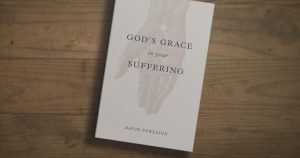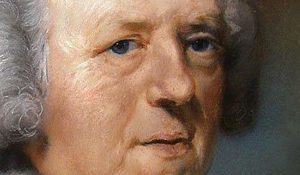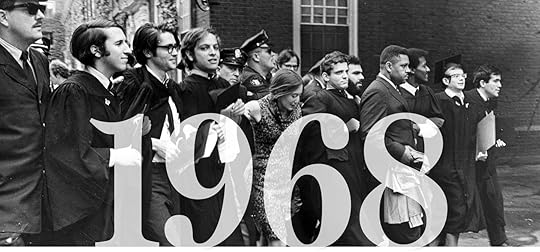Justin Taylor's Blog, page 23
June 24, 2019
Jesus, Paul, and Virtue Signaling on Twitter.com

Beware of announcing your compassion for the latest calamity on Twitter, like grieving for the people in New Zealand.
Why is that a problem? Because Jesus said,
Beware of practicing your righteousness before other people in order to be seen by them, for then you will have no reward from your Father who is in heaven. (Matthew 6:1)
And when you fast, do not look gloomy like the hypocrites, for they disfigure their faces that their fasting may be seen by others. Truly, I say to you, they have received their reward. But when you fast, anoint your head and wash your face, that your fasting may not be seen by others but by your Father who is in secret. And your Father who sees in secret will reward you. (Matthew 6:16–18)
Now, what does that mean?
It means if you’ve been crying alone as you pray for your kids and skipped a meal on Friday and poured out your heart, you wash your face before you walk out of that room. You don’t put it on Twitter. In essence, Jesus said, “Don’t virtue signal.” “I’m virtuous, folks. I cry when there’s a calamity. When there’s a tornado in Oklahoma, I cry.”
And Jesus said, Don’t do that.
But Paul just did it in verse 18. He said, “I’m crying.” He didn’t have to say that. He could’ve said, “Oh, Jesus said not to say that. So I won’t say it. I won’t say that I’m crying as I’m writing this letter.” And he said it.
What are we to make of that? Is it ever right for a pastor to say, “I have shed tears for this church”? Do you have a right to say that?
I think so.
So, what’s the difference? Why is it okay for Paul to broadcast his tears when Jesus says, “Wash your face after you’ve been crying and fasting so only your Father knows about it”?
I spend most of my time trying to see unity in the Bible. And it’s beautiful when you can see it. I think the answer is motive and audience. Jesus said, “Don’t practice your righteousness in order to be seen.” That’s a motive.
If Paul’s being driven by wanting some praise from the Philippians as a tenderhearted pastor, that’s wicked. Paul did this more than once, right?
In Acts 20:31 he says to the elders,
Therefore be alert, remembering that for three years I did not cease night or day to admonish every one with tears.
“Three years I cried over you elders.”
Wow. He didn’t have to say that.
Or 2 Corinthians 2:4:
I wrote to you out of much affliction and anguish of heart and with many tears, not to cause you pain but to let you know the abundant love that I have for you.
So my first answer is when Paul wrote about his tears, he wasn’t trying to get praise. He was trying to tell them how much he loved them, how much he loved people, how much he wanted them to be that kind of tenderhearted person.
And the other is audience. Broadcasting your tears to the world is different than looking at a child and saying, “I’ve wept for you, son,” or a church that you want to get your hands around and you just have to say what you feel because they’re your family. That’s different. So, those are my two efforts to make sense out of Paul’s saying that he was crying when he wrote this letter and Jesus saying, “Wash your face so that you will be seen by God and not by man.”
So, my exhortation is be discerning and beware of performance tears. People can tell when you’re planning them.
You can read the whole meditation here, which constitutes seven exhortations on the the place of tears in the Christian life.
June 20, 2019
What Are the Requirements to Be an Elder?

In 1 Timothy 3:1–7 and Titus 1:6–9, the Apostle Paul sets forth a number of characteristics that men must possess in order to be pastors, elders, overseers, shepherds. (In the New Testament, these terms are all equivalent—elder connotes the man’s dignity and standing; overseer his function and duty; pastor his calling of shepherding, protecting, and feeding of the flock through teaching.)
Several years ago, John Piper did a seminar on biblical eldership and worked through these qualifications. I thought it might be helpful to adapt the comparative chart from the ESV Study Bible collating the qualifications and then listing Piper’s corresponding definitions.
I hope this is as helpful for others as it has been for me as we think through the requirements of this high and holy calling.
1 Timothy
Titus
3:1
one who has aspiration to the office
He aspires to the role
of being an elder, bishop, overseer, pastor, shepherd. This does not exclude
the possibility that he is sought out and urged to be an elder. But no
pressure should be used that would result in an unwilling, half-hearted
service.
3:2
above reproach
1:6, 7
above reproach
He lives in a way that
gives no cause for others to think badly of the church or the faith or the
Lord.
3:2
husband of one
wife
1:6
husband of one
wife
The
question is probably one of notoriety. What is this man’s reputation with
regard to whether he has had one wife or not?
3:2
3:3
sober-minded
not a drunkard
1:8
1:7
disciplined
not . . . a
drunkard
He exercises
self-control and mastery of his
appetites.
He
prizes freedom from enslavements to such a degree that no bondage is yielded
to.
3:2
self-controlled
1:8
self-controlled
He is sensible. He is
prudent. He is reasonable. He has good judgment. He sees things as they
really are. He knows himself well. He understands people and how they
respond. He is in touch with reality, such that there are no great gaps
between what he sees in himself and what others see in him.
3:2
respectable
He is honorable and dignified. He
comports himself in
situations so as not to step on toes unnecessarily. He does not offend
against propriety.
3:2
hospitable
1:8
hospitable
He loves strangers. He
is given to being kind to newcomers. He makes them feel at home. His home is
open for ministry. He does not shrink back from having guests; he is not a
secretive person.
3:2
able to teach
1:9
able to give
instruction
He is an apt teacher,
skilled in teaching. He knows biblical doctrine well and is able to explain
it to people. He is astute enough theologically that he can spot serious
error and show a person why it is wrong and harmful.
3:3
not violent
1:7
not . . .
violent
He is not pugnacious or belligerent. His temper is under control. He is not given to quarreling or fighting. He has a conciliatory bent. His feelings are not worn on his sleeve. He does not carry resentments. He is not hypercritical.
3:3
gentle
He is not harsh or mean-spirited. He is inclined to tenderness. He resorts to toughness only when the circumstances commend this form of love. His words are not acid or divisive but helpful and encouraging.
3:3
not
quarrelsome
1:7
not
arrogant or quick-tempered
He is
peaceable.
He
is lowly in his demeanor, not speaking much of himself or his achievements.
He counts others better than himself and is quick to serve. He sincerely
gives God the credit and honor for any accomplishments.
3:3
not a lover of
money
1:7
not . . .
greedy for gain
He puts the kingdom
first in all he does. His lifestyle does not reflect a love of luxury. He is
a generous giver. He is not anxious about his financial future. He is not so
money-oriented that ministry decisions revolve around this issue.
3:4–5
a good manager of his
own household; cares for God’s church; keeps his
children submissive
1:6–7
a steward; his children are
faithful, not insubordinate
He is the leader of a
well-ordered household. If he has children, they are submissive (not perfect,
but well-disciplined, so that they do not blatantly and regularly disregard
the instructions of their parents). His children revere him. He is a loving
and responsible spiritual leader in the home. He respects and tenderly loved
his wife, if he is married. Their relationship is openly admirable.
3:6
not a recent
convert
He
is a mature believer. There are evidences in his life that humility is a
fixed virtue and not easily overturned.
3:7
well thought
of by outsiders
He
meets the standards of the world for decency and respectability (as the
standards of the church are higher).
1:8
a lover of
good
He loves to be
involved in doing good. More than merely doing good, he has a bent and love
to see goodness done. He is an expansive person.
1:8
upright
He cares about whether
people are treated fairly. He wants to see justice in the world at all
levels.
1:8
holy
He is a person of
devotion to Christ with a life of prayer and meditation. He loves worship and
has a deep personal relationship with the Lord.
10 Things to Know about What the Bible Teaches on God and Human Government

The following is adapted from J. Budziszewski, Evangelicals in the Public Square: Four Formative Voices on Political Thought and Action (Baker Academic, 2006).
1. God is the true sovereign.
Psalm 22:28
For kingship belongs to the LORD, and he rules over the nations.
God ordained all human government for the good of man . . .
Romans 13:1, 3–4
Let every person be subject to the governing authorities. For there is no authority except from God, and those that exist have been instituted by God. . . . For rulers are not a terror to good conduct, but to bad. Would you have no fear of the one who is in authority? Then do what is good, and you will receive his approval, for he is God’s servant for your good. But if you do wrong, be afraid, for he does not bear the sword in vain. For he is the servant of God, an avenger who carries out God’s wrath on the wrongdoer.
. . . whom God made in his image.
Genesis 1:27
So God created man in his own image,
in the image of God he created him;
male and female he created them.
2. Although God originally chose only one nation, he desires ultimately to draw all nations into the light of his Word.
Isaiah 49:6
“It is too light a thing that you should be my servant
to raise up the tribes of Jacob
and to bring back the preserved of Israel;
I will make you as a light for the nations,
that my salvation may reach to the end of the earth.”
Romans 10:12
For there is no distinction between Jew and Greek; for the same Lord is Lord of all, bestowing his riches on all who call on him.
Revelation 21:23–24
And the city has no need of sun or moon to shine on it,
for the glory of God gives it light, and its lamp is the Lamb.
By its light will the nations walk,
and the kings of the earth will bring their glory into it.
3. God disciplines the nations according to their deeds.
Jeremiah 18:7–10
If at any time I declare concerning a nation or a kingdom, that I will pluck up and break down and destroy it, and if that nation, concerning which I have spoken, turns from its evil, I will relent of the disaster that I intended to do to it. And if at any time I declare concerning a nation or a kingdom that I will build and plant it, and if it does evil in my sight, not listening to my voice, then I will relent of the good that I had intended to do to it.
Jeremiah 5:28–29
“They have grown fat and sleek.
They know no bounds in deeds of evil;
they judge not with justice
the cause of the fatherless, to make it prosper,
and they do not defend the rights of the needy.
29 Shall I not punish them for these things?
declares the Lord,
and shall I not avenge myself
on a nation such as this?”
4. God disciplines the rulers of nations.
Daniel 2:20–21
Daniel answered and said:
“Blessed be the name of God forever and ever,
to whom belong wisdom and might.
He changes times and seasons;
he removes kings and sets up kings;
he gives wisdom to the wise
and knowledge to those who have understanding.”
Jeremiah 25:12
Then after seventy years are completed, I will punish the king of Babylon and that nation, the land of the Chaldeans, for their iniquity, declares the Lord, making the land an everlasting waste.
Daniel 4:27
“Therefore, O king, let my counsel be acceptable to you: break off your sins by practicing righteousness, and your iniquities by showing mercy to the oppressed, that there may perhaps be a lengthening of your prosperity.”
5. In general, disobedience to human government is disobedience to God; indeed, government deserves not only obedience but honor.
Romans 13:1–2, 7
Let every person be subject to the governing authorities. For there is no authority except from God, and those that exist have been instituted by God. Therefore whoever resists the authorities resists what God has appointed, and those who resist will incur judgment. . . . Pay to all what is owed to them: taxes to whom taxes are owed, revenue to whom revenue is owed, respect to whom respect is owed, honor to whom honor is owed.
6. But there are exceptions: Any governmental edict that contradicts the commands of God must be disobeyed.
Acts 5:29
Peter and the apostles answered, “We must obey God rather than men.”
Daniel 3:18
“But if not, be it known to you, O king, that we will not serve your gods or worship the golden image that you have set up.”
Exodus 1:17, 20–21
But the midwives feared God and did not do as the king of Egypt commanded them, but let the male children live. . . . So God dealt well with the midwives. And the people multiplied and grew very strong. And because the midwives feared God, he gave them families.
7. The just purposes of human government include
[a] the commendation of good,
[b] the punishment of evil,
[c] the maintenance of peace, and
[d] the protection of the oppressed.
1 Peter 2:13–14
Be subject for the Lord’s sake to every human institution, whether it be to the emperor as supreme, or to governors as sent by him to punish those who do evil and to praise those who do good.
1 Timothy 2:1–2
First of all, then, I urge that supplications, prayers, intercessions, and thanksgivings be made for all people, for kings and all who are in high positions, that we may lead a peaceful and quiet life, godly and dignified in every way.
Isaiah 10:1–2
Woe to those who decree iniquitous decrees,
and the writers who keep writing oppression,
to turn aside the needy from justice
and to rob the poor of my people of their right,
that widows may be their spoil,
and that they may make the fatherless their prey!
8. In pursuance of these purposes, God authorizes human government
[a] to use force on his behalf and
[b] in grave cases even to take life, though never deliberately to take the life of the innocent.
Romans 13:3–4
For rulers are not a terror to good conduct, but to bad. Would you have no fear of the one who is in authority? Then do what is good, and you will receive his approval, for he is God’s servant for your good. But if you do wrong, be afraid, for he does not bear the sword in vain. For he is the servant of God, an avenger who carries out God’s wrath on the wrongdoer.
Genesis 9:6
Whoever sheds the blood of man,
by man shall his blood be shed,
for God made man in his own image.
9. Yet human government cannot fully or permanently redress wrong, because it cannot uproot sin from the human heart; this can be done only by the saving grace of God through Jesus Christ.
Jeremiah 17:9
The heart is deceitful above all things,
and desperately sick;
who can understand it?
Isaiah 64:6
We have all become like one who is unclean,
and all our righteous deeds are like a polluted garment.
We all fade like a leaf,
and our iniquities, like the wind, take us away.
Romans 3:22–25
The righteousness of God through faith in Jesus Christ for all who believe. For there is no distinction: for all have sinned and fall short of the glory of God, and are justified by his grace as a gift, through the redemption that is in Christ Jesus, whom God put forward as a propitiation by his blood, to be received by faith. This was to show God’s righteousness, because in his divine forbearance he had passed over former sins.
10. Moreover, the community of redemption is not the state but the church. No matter how much respect is due to the state, the church is never to be identified with it.
John 18:33–36
So Pilate entered his headquarters again and called Jesus and said to him, “Are you the King of the Jews?” Jesus answered, “Do you say this of your own accord, or did others say it to you about me?” Pilate answered, “Am I a Jew? Your own nation and the chief priests have delivered you over to me. What have you done?” Jesus answered, “My kingdom is not of this world. If my kingdom were of this world, my servants would have been fighting, that I might not be delivered over to the Jews. But my kingdom is not from the world.”
Acts 20:28
Pay careful attention to yourselves and to all the flock, in which the Holy Spirit has made you overseers, to care for the church of God, which he obtained with his own blood.
June 12, 2019
Powlison: 5 Questions to Ask When You Are Suffering

David Powlison, God’s Grace in Your Suffering (Wheaton: Crossway, 2018), 43–46.
When he engages your suffering, the all-wise God typically creates a dynamic interplay of five questions.
What hardship are you facing?
What life-giving word from him speaks to you?
What input do wise friends give you?
How can you honestly wrestle your way toward trusting him?
What should you do next?
. . . Walk this through for yourself.
1. What hardship are you facing?
The first question is easy to answer, because life lands on your head with something hard. What are you facing? If you’ve chosen a crushing, multi-dimensional affliction, perhaps start with one small slice of the far larger problem. God’s ways with us always respect that we can only take the next step. No leaping tall buildings at a single bound.
2. What life-giving word from him speaks to you?
The second question has many possible answers.
Do you already have in mind something true from and about our God that speaks relevantly to you in your situation? . . .
What has been helpful to you in the past?
Or do you need something fresh about who the Lord is?
Read in parts of Scripture where suffering provides the backdrop. Psalms, Job, 2 Corinthians, and 1 Peter are the usual suspects. But many parts of Scripture touch on our afflictions.
Is there a song that reminds you of who you are in his sight?
A psalm that honestly relates to God in the middle of a struggle?
A teaching point from a sermon or book that speaks to how God works in affliction?
A promise of what the Lord will do in the future?
3. What input do wise friends give you?
The third question is very important, but can be complicated to answer.
You need other people. It’s easy to forget this, and try to fly solo through hard times.
Who can walk with you?
Ask yourself:
“Who is the person I most trust?
Who will handle with care the fine china of my honest struggles?
Who will draw me out and listen well?
Who keeps confidences, prays thoughtfully, and is willing to speak candidly with godly wisdom?
Who is the most sensible, straightforward, humble, believing, experienced, courageous person I know?”
None of your friends is perfect! But God puts imperfect people in our lives who are also wise, caring, and trustworthy—the kind of person you want to be for others.
Who can share the burden with you, will cast your cares on God, will encourage you?
Part of the complexity of Question 3 comes because other people can be foolish—even very foolish. They can be like Job’s counselors, and treat you wrong. They might offer bad counsel. They might make foolish promises that aren’t at all true about God and how he works within tough situations. They might be meddlesome and just try to fix you. They might be untrustworthy, and prone to gossip. So you can’t ask just anyone to walk with you. . . .
4. How can you honestly wrestle your way toward trusting him?
The fourth question gets you wrestling to make what is true your own.
Wrestle to remember and take to heart truth that is easy to forget. Seek the Lord honestly.
In turning toward him, you will likely be turning away from instinctive and habitual sins. Anxiety? Anger? Despair? Escapism? He is merciful. He opposes the proud, but gives grace to the humble (James 4:6).
Don’t be afraid to tell the Lord the truth about your sufferings, your sins, your desires for mercy, your struggle. Dozens of psalms have walked that road.
Ask your Father to give you his Holy Spirit. All wisdom, trust, peace, courage, love, endurance, hope is a fruit of his personal touch.
Honest wrestling is not magic. It’s not “claiming the victory.” It’s not finding a religious truism to short-circuit the process. And it’s not wallowing in heartache and self-pity. God is taking us in his direction. Ask. Seek. Knock. He found you first, and he is willing to be found.
4. What should you do next?
The fifth question gets you thinking about the practical “What now?”
In significant suffering, the problem is always much bigger than what you are called to do now. I couldn’t fix the distressing things that had happened that day, but I could make a couple of phone calls. Katharina von Schlegel couldn’t bring back her beloved friends, but she could put her soul’s struggle into a poem that we still sing, “Be still, my soul.”
What is a small, but significant next step? It may be as simple as getting up from prayer and calling a friend, or doing the laundry, or paying your bills, or going to work, or taking a personal day to walk in the park
June 10, 2019
John Newton on Why Calvinists of All People Should Be the Gentlest in Controversy

John Newton, the slave-ship captain and self-described chief of sinners turned wise and gracious Anglican pastor:
Of all people who engage in controversy, we, who are called Calvinists, are most expressly bound by our own principles to the exercise of gentleness and moderation.
If, indeed, they who differ from us have a power of changing themselves, if they can open their own eyes, and soften their own hearts, then we might with less inconsistency be offended at their obstinacy: but if we believe the very contrary to this, our part is, not to strive, but in meekness to instruct those who oppose.
“If peradventure God will give them repentance to the acknowledgment of the truth.” [2 Tim. 2:25, KJV]
If you write with a desire of being an instrument of correcting mistakes, you will of course be cautious of laying stumbling blocks in the way of the blind or of using any expressions that may exasperate their passions, confirm them in their principles, and thereby make their conviction, humanly speaking, more impracticable.
If you haven’t read his letter On Controversy, or reread it lately, it is so very helpful—to all of us.
June 7, 2019
David Powlison (1949–2019)

David Powlison died peacefully at his home in Glenside, Pennsylvania, at 11 am (Eastern Time) on Friday, June 7, 2019, after suffering from pancreatic cancer.
He was 69 years old.
Parents
Dora Powlison, David’s mother, went by “Dodie.” She was born in Port Townsend, Washington, and moved to Hawaii in 1948, where she served for many years as a teacher at Central Union Church Preschool in Honolulu.
Peter Powlison, David’s father, was born in Turkey and raised in the Lanikai neighborhood of Kailua, on the east coast of Oahu.
In the 1920s, Peter’s father, Arthur K. Powlison—a YMCA official, sailor, and boat builder—received permission from Hawaiian officials to build an oceanfront home on a cliff, but only on one condition: he could not remove or destroy any of the rocks, which are sacred to the Hawaiian people. So he built the “Hilltop Home” (now a landmark) without chiseling or chipping a single rock, using the natural stone notches for support beams and incorporating the rocky crags of the cliff into the floor of the home.

The home overlooked Kaneohe Naval Air Station, 20 miles east of Peal Harbor. On Sunday morning, December 7, 1941, Anne Powlison was preparing to serve breakfast to her two daughters and four guests when she noticed out the window that smoke and flames were billowing from the air base from the Japanese bombing attack. She actually made eye contact with some of the pilots flying by. She wrote letters to Peter, then halfway through his sophomore year at the University of Washington, giving him daily updates on the aftermath. (Years later the letter were discovered and compiled in this book.) For three years, during World War II, the US military commandeered the Powlison hilltop home to serve as a training center and vantage point to look for Japanese bombers.
After graduating from the University of Washington and serving in the Marine Corps, Peter married Dodie and they returned to Hawaii. In 1949 he began teaching at his alma mater, Punahou’s Junior School—the same year David was born. In 1951 he helped to create the Asian History Department for the Punahou Academy.
So legendary was Peter Powlison as a teacher that when he took early retirement in 1981, the school retired his classroom—201 Griffiths—along with him.
Peter Powlison was an All-American swimmer in both high school and college. At the age of 64, after four heart bypass surgeries, he won five gold medals and set four world records at the World Masters Swimming Championships in Tokyo.
Peter collapsed and died at the age of 65 on July 10, 1987, at the University of Hawaii, after setting another World record in a Master’s Swim Meet.
David Powlison
David Arthur Powlison was born on December 14, 1949, in Honolulu, Hawaii, the first of three children to Peter and Dora Powlison. He had two younger siblings: Daniel and Diane.
Peter Powlison taught his son David to swim at the age of three, and David went to the beaches near his home virtually every day of his childhood.
He later reflected on the culture surrounding him as a Caucasian growing up in the 50th state of the United States:
I grew up in a place that was as Asiacentric as Eurocentric—Honolulu—and most of my schoolmates were Amer-Asians. My father taught Asian history, and our dinner guests were as often as not from South or East Asia.
David’s father never pushed him. David was fascinated by the father-son relationship, and in college, he wrote a 70-page page paper on his relationship with his father for Professor Goethals of Harvard.
Like his father, David attended Punahou School in Honolulu, a private college preparatory K–12 school.
(Four years after David graduated from Punahou in 1967, a 10-year-old fifth-grade boy named Barack Obama received a scholarship to the prestigious school and entered fifth grade. He graduated high school there in 1979.)
Religion and the Quest for Meaning
The Powlisons attended a very liberal mainline church—which was probably Unitarian in functional belief. As an adolescent, David reasoned:
Jesus is a really good person who cared for people less fortunate than him.
Therefore, we should be good people who care for people less fortunate than us.
That was about the sum of his thinking about Jesus and Christianity.
It was during David’s high school years that he became preoccupied with existential questions: What lasts? What matters? What is meaningful? Who am I? He became entirely estranged from his nominal mainline church. Christianity, he thought, was a polite veneer for people who refused to face hard realities.
During that time, he himself was confronted with death and depravity, including bullying (of himself and others), the murder of a classmate, suicidal friends, exposure to pornography, and seeing others self-immolating on drugs.
He later wrote:
I was a passenger in a car that killed a man as he walked down a dark country road. I can still see his face— he turned toward our headlights in the last seconds, and I looked into his eyes as we hit him.
And I sat at my grandfather’s bedside after he had a serious stroke. He was rummaging through his achievements, relationships, aspirations, and travels. He was searching for something that retained meaning, something he could hold on to, something that he could tell me mattered in life. But everything he mentioned seemed to crumble before his eyes as he spoke. In the end, all he could say was that life is more than money, and all he could do was break down and weep.
After saying goodbye, I sat on the steps outside the hospital and wept too.
Harvard in the 1960s
In 1967, David began a degree in social relations at Harvard College, earning an AB in the spring of 1971. He had been a high school All-American swimmer his last two years, and at Harvard he became a letter-winner on the swim team for his last three years there.
But things were not well in his spiritual world.
Neither academics, nor athletics, nor career could bear the weight of identity and meaning.
Close relationships failed.
A foray into drug use almost unhinged me.
Awareness of my own egocentrism was slowly dawning.
We’re always the last to know the person in the mirror.
He had matriculated into Harvard as a math and science major, but soon migrated to psychology and social sciences, and then moved on to literature and the arts.
It was through his reading of Dostoevsky and T. S. Eliot that it slowly dawned on him that that Christianity directly addressed the big questions of life, even though he didn’t embrace the teachings of Christianity itself.
His interests during the turbulent 1960s included radical politics, Vietnam War protests, the drug culture, existentialism, Hindu, and New Age. He was involved with radical student politics, becoming head of the SDS (Students for a Democratic Society) chapter at Harvard. In one of their conflicts with the (very Irish) Boston police, David was the designated “medic” dressed in camo but with a medic arm band. When the police line broke and began chasing the students, two policemen cornered him in an alley and he escaped by jumping a high fence.

From 1973 to 1976, he worked for the Mental Health Department, serving at McLean Psychiatric Hospital, Belmont, Massachusetts, just five miles from Harvard.
It was in the midst of this time in his life that he was radically and unexpectantly converted to follow Christ.
Conversion to Christ
At Harvard, David’s best friend and roommate, Bob Kramer, had become a Christian when they were twenty years old. They both thought about the same kinds of questions, and began an ongoing conversation and debate for the next five years.
David remembers:
I was stubborn.
I could follow the plausible logic of Christian faith. But every train of thought came to the same dead end.
I did not want someone to rescue me.
I did not want someone to tell me what to do.
I wanted to do life on my own and on my own terms. But God had other ideas about how to do my life. He was merciful.
One Sunday evening, on August 31, 1975—some four years after they had graduated from Harvard—Bob spoke to David with unexpected, uncharacteristic candor. They had spoken many times about the usual issues of Scripture and Christ and philosophy, going round and round the mulberry bush, with David always dodging.
But that night Bob got very personal with him.
David, Diane and I really love you.
I respect you as much as anyone I know . . .
But what you believe . . . and how you are living . . .
You are destroying yourself.
David recounts what happened next:
I knew he was right. The Holy Spirit used his words as an armor-piercing shell. I came under comprehensive and specific conviction of my sinfulness, uncleanness, unbelief, and unacceptability before Christ. It was a my-whole-life-passing-before-my-eyes moment. I felt the weight of many sins. The two that cut me the deepest were not on the popular list of heinous transgressions.
As a man with an existentialist streak, I had believed that despair, not joy, got last say.
And as someone who wanted to run my own life, I had not believed the love of God in Jesus Christ, but relentlessly rejected him.
I realized my wrong on both counts.
When I responded (one minute later? Ten minutes?), I asked, “How do I become a Christian?”
Bob shared with him Ezekiel 36:25–27, a promise from the God of hope:
I will sprinkle clean water on you, and you shall be clean from all your uncleannesses, and from all your idols I will cleanse you. And I will give you a new heart, and a new spirit I will put within you. And I will remove the heart of stone from your flesh and give you a heart of flesh. And I will put my Spirit within you, and cause you to walk in my statutes and be careful to obey my rules. (Ezek. 36:25–27)
David continues:
Bob invited me to ask God for mercy. I beseeched God for mercy. God was merciful. Promises from eons ago proved true— God willingly saves, forgives sins, creates a new life, gives his own Spirit, promises great help to obey. He did all this. He found me and led me home. I was surprised by joy and by the love of Jesus.
David didn’t “ask Jesus into his heart.” Rather, he cried out to be rescued: “God, be merciful to me, a sinner!”
Bob gave David a simple “New Life” booklet, written by the evangelist Jack Miller, that pulled the pieces together for David about what it meant to respond to Christ in faith.
By now it was late, and he drove home by himself. He didn’t have any sense of the category, “Oh, I’ve become a Christian.” Rather, he sat there in the car, thinking to himself: “Huh, that’s interesting. I never thought of myself as a sinner before.”
When he got into his apartment, having been hammer-blasted with a reality, he went to sleep.
He woke up the next morning and was absolutely flooded with joy. The first thoughts that ran through his mind after his awakening were, “I’m home.” “I’m a Christian.”
He later wrote:
It was as though my entire life had been walking hot, dusty roads looking for something which wasn’t God, but He was looking for me, and then finding myself at home, and finding that I had been found and loved. I’m a Christian.
At the age of 25, he had been reborn.
But as an adult convert, he still felt like something of an outsider, something he never totally lost:
Subsequent educational and practical experience—a degree in social relations at Harvard College, ’60s-style alienation from capitalist and nationalist values, three years of work on the wards of McLean Psychiatric Hospital, and doctoral studies at the University of Pennsylvania—have reinforced habits of critical disenculturation and dislike of Whiggish triumphalism. As an adult convert to Christianity, and as a participant in a sometimes triumphalist and parochial movement, I can still find myself a stranger in the sometimes strange land of conservative Protestant Christianity.
Seminary and Marriage
In the fall of 1975, David met Nancy Gardner. She was giving a multi-media presentation at an art festival held at Westminster Theological Seminary in Glenside, Pennsylvania. Bob Kramer was now a student at WTS, and David—a brand-new believer—was visiting as a prospective student.
A year later, in the fall of 1976, David was enrolled at WTS. The Kramers invited Nan and David to lunch at their place. Nan had come to Philadelphia to photograph a WTS student who was an artist and did his pottery in the basement of the counseling center, where he lived. She turned it into a multimedia presentation: “The Potter.”
David and Nan encountered each other a few more times in Philadelphia and did things together with others, but without really dating. That winter, they served together as counselors at a middle school kids FOCUS camp at Owl’s Nest, New Hampshire. FOCUS was a ministry to private prep schools in New England / Mid-Atlantic states (similar to the Bash Camps in the UK where John Stott came to Christ). Bob Kramer and Charlie Drew were friends of theirs and involved with FOCUS. It was freezing outside, but David and Nan went cross-country skiing together and skated on the black ice out to an island in the lake with the kids, having a blast.
Years later, Nan remember that night in a poem to David:
Remember that full moon magic night
Gliding seamless
On a New Hampshire lake
With all the kids in one long whiplash
And we two
Too shy to hold hands
Holding onto each other’s shadows
And oh the stars
In the mirror night!
Stars falling all around us
Falling at our feet
We cut through their light
And I was falling for you
Your full moon heart
And your blue coat!
Remember the island
Tree shadows calligraphic in the snow
Writing what seemed like Scripture
And we—surrounded by kids
Were only two
Then
Skating back
The cold snap rush
Upon our faces
And Light
Pouring into light
Somehow we knew
He enrolled as a Master of Divinity student at Westminster Theological Seminary in Glenside, Pennsylvania, graduating from seminary in 1980. David and Nan had three children: Peter (1980), Gwenyth (1982), and Hannah (1986).

Biblical Counseling
That same year he became a writer, editor, and counselor at CCEF (Christian Counseling and Education Foundation), founded in 1968 in Glenside, Pennsylvania. David also became a visiting professor at Westminster Theological Seminary.
From there, he received an MA (1986) and then a PhD (1996) from the University of Pennsylvania, writing his dissertation in the subject area of history of science and medicine: “Competent to Counsel? The History of a Conservative Protestant Anti-Psychiatry Movement” (later published at The Biblical Counseling Movement: History and Context.)
In 1970, Jay Adams, a 41-year-old Presbyterian minister, published a book entitled Competent to Counsel, which effectively launched an anti-psychiatry movement among American, conservative Protestants. Partly inspired by O. H. Mowrer and Thomas Szasz, Adams made three primary claims: (1) modern psychological theories were bad theology, misinterpreting functional problems in living; (2) psychotherapeutic professions were a false pastorate, interlopers on tasks that properly belonged to pastors; (3) the Bible, as interpreted by Reformed Protestants, taught pastors the matters necessary to counsel competently.
Adams called this “nouthetic” (from the Greek word, noutheteo, “to admonish”) counseling. Institutional forms soon developed, which were in conflict with three powerful professional constituencies: (1) secular psychological professions dominated twentieth-century discourse and practice regarding problems in living; (2) the mainline Protestant pastoral counseling movement had shaped religious counseling from the 1940s; (3) a rapidly professionalizing community of evangelical psychotherapists shared Adams’s conservative Protestant faith but looked to integrate that faith with modern psychologies.
Before David Powlison’s work, no one had studied this conflict over professional jurisdiction that was being fought between Adams and the evangelical psychotherapists. He worked almost exclusively from primary sources, including interviews, publications, and case records.
At the end of the day, Powlison wrote:
Adams gained followers among pastors and their parishioners, but largely lost the inter-professional conflict.
In the 1980s evangelical psychotherapists successfully asserted their claim to cultural authority over problems in living, extending their institutional power in higher education, publishing, and the provision of care.
The nouthetic counseling movement became isolated from the mainstream of conservative Protestantism; its institutions languished; fault lines emerged internally. But in the 1990s, nouthetic counseling again began to prosper.
CCEF—David’s employer—explains their own relationship to this movement and how they developed over the years:
CCEF’s early history was largely prophetic and therefore polemic. The church was challenged to rethink its beliefs about why people struggle and how to help them when they do. CCEF called pastors and seminaries back to the primacy of Scripture as the basis for thoughtful and effective pastoral care and counseling. From the beginning, there was always a concern to define what could legitimately be learned from modern psychology, but Scripture provided the orienting “generalizations”: a God-centered view of people and problems and solutions. What was at stake was which source would be primary.
As CCEF entered the 1980’s and 90’s, it was apparent that the second and third generation of leaders benefited from the strengths of their predecessors as well as learned from their weaknesses. They moved CCEF in a direction of increased sensitivity to human suffering, to the dynamics of motivation, to the centrality of the gospel in the daily life of the believer, the importance of the body of Christ and to a more articulate engagement with secular culture.

The Legacy of David Powlison

David Powlison’s legacy will begin within his own family. He was a man who dearly loved his wife, his children, and his grandchildren.
His legacy extends to those whom he instructed and touched through the biblical counseling movement, in particular through CCEF and Westminster Theological Seminary.
David was not a prolific book author, by some standards. He was, however, a prolific essayist, and his booklets in particular are filled with gentle wisdom and deep reflection on how the Word of God speaks into every part of life. His final full-length books were devoted to some of the themes he taught particularly well:
Making All Things New: Restoring Joy to the Sexually Broken
God’s Grace in Your Suffering
Good and Angry: Redeeming Anger, Irritation, Complaining, and Bitterness
How Does Sanctification Work?
The book he was working on when he died is scheduled to be released this fall:
Safe and Sound: Standing Firm in Spiritual Battles
On May 23, 2019, David Powlison was scheduled to give the closing comments at the Westminster Theological Seminary Graduation Ceremony. He was unable to attend, however, because he was receiving hospice care at home. His remarks were read in his absence, and he pled with the students—about to begin their public ministries—as follows:
My deepest hope for you is that in both your personal life and your ministry to others, you would be unafraid to be publicly weak as the doorway to the strength of God Himself.
Why Not Me?
In his suffering book, David Powlison noted that so often our initial reaction to painful suffering is:
Why me?
Why this?
Why now?
Why? . . .
He wrote:
[God] comes for you, in the flesh, in Christ, into suffering, on your behalf. He does not offer advice and perspective from afar; he steps into your significant suffering. He will see you through, and work with you the whole way. He will carry you even in extremis. This reality changes the questions that rise up from your heart. That inward-turning “why me?” quiets down, lifts its eyes, and begins to look around. You turn outward and new, wonderful questions form.
Why you?
Why you?
Why would you enter this world of evils?
Why would you go through loss, weakness, hardship, sorrow, and death?
Why would you do this for me, of all people?
But you did.
You did this for the joy set before you.
You did this for love.
You did this showing the glory of God in the face of Christ.
As that deeper question sinks home, you become joyously sane. The universe is no longer supremely about you. Yet you are not irrelevant. God’s story makes you just the right size. Everything counts, but the scale changes to something that makes much more sense. You face hard things. But you have already received something better which can never be taken away. And that better something will continue to work out the whole journey long.
The question generates a heartfelt response:
Bless the Lord, O my soul, and do not forget any of his benefits, who pardons all your iniquities and heals all your diseases, who redeems your life from the pit, who crowns you with lovingkindness and compassion, who satisfies your years with good things so that your youth is renewed like the eagle.
Thank you, my Father. You are able to give true voice to a thank you amid all that is truly wrong, both the sins and the sufferings that now have come under lovingkindness.
Finally, you are prepared to pose—and to mean—almost unimaginable questions:
Why not me?
Why not this?
Why not now?
If in some way, my faith might serve as a three-watt night-light in a very dark world, why not me?
If my suffering shows forth the Savior of the world, why not me?
If I have the privilege of filling up the sufferings of Christ?
If he sanctifies to me my deepest distress?
If I fear no evil?
If he bears me in his arms?
If my weakness demonstrates the power of God to save us from all that is wrong?
If my honest struggle shows other strugglers how to land on their feet?
If my life becomes a source of hope for others?
Why not me?
Of course, you don’t want to suffer, but you’ve become willing: “If it is possible, let this cup pass from me; yet not as I will, but as you will.”
Like him, your loud cries and tears will in fact be heard by the one who saves from death.
Like him, you will learn obedience through what you suffer.
Like him, you will sympathize with the weaknesses of others.
Like him, you will deal gently with the ignorant and wayward.
Like him, you will display faith to a faithless world, hope to a hopeless world, love to a loveless world, life to a dying world.
If all that God promises only comes true, then why not me?
June 4, 2019
David Powlison’s Commencement Address: Be Unafraid to Be Publicly Weak

On May 23, 2019, David Powlison was scheduled to give the closing comments at the Westminster Theological Seminary Graduation Ceremony. He was unable to attend, however, because he is receiving hospice care at home, suffering from stage IV pancreatic cancer. His remarks were read in his absence.
In what may be his final formal remarks to the seminary community, he pled with the students, on the beginning of their public ministries, to be unafraid to be publicly weak, using David, Paul, and Jesus as examples of this practice. The following is an excerpt. (The whole thing may be read here.)
David
Being unafraid to be publicly weak was true of King David.
The end of Psalm 40 has always resonated deeply with me. This psalm contains a great deal of fruitful ministry and joyful worship, yet David summarizes himself this way:
“As for me, I am poor and needy, but the Lord takes thought for me.”
David’s strength grew out of his comprehensive sense of weakness, and his confidence in God’s strength.
Paul
We see something very similar in the life of the apostle Paul.
He pleads with God to take away a very distressing affliction, but the Lord says,
“No, my grace is sufficient for you, for power is perfected in weakness.”
Paul goes on to say,
“I will gladly boast of my weakness as the doorway through which the strength of God enters my life.”
Jesus
Supremely we see fearlessness of public weakness in the life and words of Jesus himself.
The Beatitudes sound the keynote of Jesus’ keynote talk, the Sermon on the Mount. What Jesus says to us captures what he himself embodies. When we think about how the image of Christ is expressed in our lives, the Beatitudes show us how the right kind of weakness, a fundamental sense of neediness, then leads directly to the right kind of strength, a strength grounded and founded in need.
Think about the qualities of strength that the last four beatitudes portray.
“Blessed are the merciful” — to have your life characterized by a deep concern for the welfare of others, to be generous, open-hearted and open-handed.
Jesus says, “The pure in heart are blessed,” describing the ability to approach all people free from duplicitous motives, free of self-serving.
Jesus says, “Peacemakers are blessed — they’re nothing less than the children of God.” Peacemaking is the ability to be candid, constructive, and caring; to pursue peace in a world that is full of war, dissension, conflicts, arguments, and avoiders.
Jesus says, “Those who are persecuted are blessed.” He calls us to joyful purposefulness, finding courage in affliction, finding perseverance in opposition. These are wonderful traits. These are the traits of leadership and loving fruitfulness in Jesus’ life — and ours as well.
The right kind of strength comes from the right kind of weakness. The right kind of weakness is expressed in the first four beatitudes:
“The poor in spirit are blessed” — those who know they need help outside of themselves. Jesus is described as one who, though he was rich, became poor. He became poor for you. He became utterly dependent, utterly needy. He died in the ultimate weakness and perishability of the human condition.
Jesus is portrayed throughout his life as one who mourns: “He is a man of sorrows, acquainted, well-acquainted, deeply-acquainted, with grief.” “Blessed are those who mourn.” He mourns for your sake, he mourns his own suffering that he must face, he mourns all the things that are wrong in this world, and he comes on a mission of mercy to make wrongs right.
“The meek are blessed.” Jesus describes himself as meek and lowly in heart. Meekness is not weakness in the negative sense. It’s weakness in the positive sense, being under the hand and voice and will of Another, heeding the voice of his Father. He was meek for you and for me, fully trusting God’s promises, fully obeying God’s will. He is the one in whose image we are to become.
Jesus is blessed because he hungers and thirsts for righteousness. He makes right what is wrong. He makes true what is false. And he remakes what is evil for the good of His people. He who is all-righteous hungers and thirsts for righteousness for our sake.
So we see in the very life of our Lord that he is all these things.
He is fruitful, he is strong, but he is fruitful and strong on the foundation of this abiding sense of weakness and need.
And it’s that weakness and need that we see supremely exhibited at the end of his life when he goes to death in our place, casting Himself on his Father’s mercy and power.
He was raised in strength, while retaining compassion and sympathy for our weakness and our need.
He warmly welcomes us to the throne of his grace, that we might receive the mercy we need and the grace specific to whatever difficult situation we are in.
My deepest hope for you is that in both your personal life and your ministry to others, you would be unafraid to be publicly weak as the doorway to the strength of God Himself.
June 3, 2019
Your Addiction to Being Online? It’s Part of the Design

Freddie DeBoer, reflecting on how your addiction to being online is part of the design:
Here’s what I know: the mindset I have partially and slowly left behind is the product of choice, and not my choice.
It’s a point that I cannot stress enough, and it’s one that I think should be far more common, prevalent, and pressing than it is today. Silicon Valley is constantly in the process of manipulating your brain chemistry to suit its ends. Deliberately and directly. Tech companies spend untold millions of dollars engineering ways to alter your mind. The way online life changes the way you think is not an accident; it is the result of a very conscious and nefarious decision by powerful corporations to monetize the malleability of our psychological selves. When you feel like you can’t stop checking Facebook every 5 minutes, when you stare at your iPhone despite knowing you’re being rude in doing so, when you lie awake at night on Instagram even though you’ve made up your conscious mind not to do so . . . these things are happening because engineers have set out to manipulate you. They have control over you. Real control. None of it is an accident, and all of it is done because it is profitable.
That we have gone along with this strikes me as one of the darkest turns in our collective cultural memory. And the change has been, to many people, unambiguously a bad one; so, so many people who are permanently online will tell you matter-of-factly that they derive far more unhappiness from online life than they do happiness. If you don’t believe me, ask around. Go on Twitter. Ask people: does this network, on balance, bring you pleasure? I suspect most will admit that it doesn’t. Certainly if all the gallows humor is to be believed the answer is no. Yet people continue to participate despite this knowledge. Cool kid Twitter has, for a very long time, struck me as an unbearably sad place; all the irony and jokes and memes paper over a desperate and directionless unhappiness. They may farm likes and retweets, and they may address the whole world from a stance of derisive and disaffected superiority. But they’re not happy people.
You can read the whole thing here.
May 23, 2019
Plato → Aristotle → Augustine → Aquinas

Peter Kreeft, Socrates’ Children: The 100 Greatest Philosophers, Volume II: Medieval Philosophers:
In the entire history of the world, there may have been some greater philosophical and theological mind than Augustine,
but I don’t know who that could possibly be, except Thomas Aquinas;
and there may have been a more passionate and beautiful philosophical poet,
though I don’t know who that could possibly be at all;
but there has certainly never been anyone greater than Augustine in both respects.
Kreeft offers an interesting attempt to schematize the relationship among Plato, Aristotle, Augustine, and Aquinas.
He writes:
Augustine and Aquinas are unquestionably the two all-time giants of Christian thought, as Plato and Aristotle are of Greek thought.
The parallels, he says, can be put in various ways:
(1)
Augustine “baptized” (Christianized) Plato
and
Aquinas “baptized” Aristotle;
or
(2)
the first half of Aristotle is Plato
and
the first half of Aquinas is Augustine;
or
(3)
as Aristotle stands on the shoulders of Plato,
Aquinas stands on the shoulders of Augustine;
or
(4)
Aristotle is a Platonist Plus
and
Aquinas is an Augustinian Plus;
or
(5)
as Aristotle was the leafy branches of the tree of Greek philosophy, Plato the trunk, and Socrates the root,
so in Christian thought Aquinas was the branches, Augustine the trunk, and Christ the root.
[If readers pick up this series from Kreeft, they will learn a lot at an introductory level. But readers should be aware that the publisher has produced books not in keeping with the quality of the content. The binding and typesetting feel self-published, and the books are littered with typos throughout.]
May 14, 2019
How to Lead an Elder Meeting

For the past few years, the elders at New Covenant Bible Church (where I serve) have begun every meeting by reading an adapted form of the following from Zack Eswine’s The Imperfect Pastor: Discovering Joy in Our Limitations through a Daily Apprenticeship with Jesus (Crossway, 2015).
How do we learn to lead meetings in ways that help us relinquish and resist the temptations we face?
I can describe for you what five years of listening has led us to. But this is no formula. Local knowledge will lead you to different details and strategies. But perhaps what we are learning can give you a place to start.
After we’ve gathered, talked, weathered awkward silences, laughed, listened to one another, and shared a scene or two from each other’s week, I invite us to pray. This is our monthly elders’ meeting. We are learning to shape it in light of what we’ve been looking at in this book.
So I’ll say something like:
“As we begin, let’s remind ourselves that a church meeting and a business meeting are apples and oranges. They both have their important roles, but they represent two differing things.”
Then I begin to read through the first portion of our stated agenda, something we do every month to begin each meeting. I often feel nervous that I’m being redundant. But these leaders remind me that they need this redundancy. It strikes them as so foreign to the air they breathe at work. So, I read on:
What we do: We shepherd the people of Riverside Church with our prayer, presence, teaching, and planning.
The next statement reads:
Our decision making: ER (immediacy and relief), BR (efficiency, quantity, and money) and Shepherding.
We remind ourselves that “Emergency Room” decision making relies upon immediacy and relief.
“Board Room” decision making highlights efficiency, quantity, and money.
At times elders need one or the other but neither as our norm.
Most of the time the growth Jesus leads us into does not come immediately, doesn’t necessarily relieve us, and is not very efficient.
Then we read 1 Peter 5:1–5, which is printed on the page:
So I exhort the elders among you, as a fellow elder and a witness of the sufferings of Christ, as well as a partaker in the glory that is going to be revealed: shepherd the flock of God that is among you, exercising oversight, not under compulsion, but willingly, as God would have you; not for shameful gain, but eagerly; not domineering over those in your charge, but being examples to the flock. And when the chief Shepherd appears, you will receive the unfading crown of glory. Likewise, you who are younger, be subject to the elders. Clothe yourselves, all of you, with humility toward one another, for “God opposes the proud but gives grace to the humble.”
After we read it, I ask: “What sticks out to you from this verse tonight?”
After a good, long pause, someone says, “Not for shameful gain.”
For the next few minutes we share with one another the temptation to use our work as elders in such a way that we gain sinfully from the people we serve, like how holding a cup so that our member with cerebral palsy can drink from its straw can turn into a dark temptation to be seen by others for the way we care for people. We turn this conversation to prayer.
Then I simply read down through the next section of bullet points. We remember:
A church meeting is not a business meeting. We have a different bottom line.
Our goal is not, as a norm, to do large things famously as fast as we can.
No relationship is on the line tonight. We give each other the benefit of the doubt.
Most of the time hurry will not help us.
Building relationships and sharing our lives together is part of our agenda and is no waste of time.
Oftentimes, we differ or disagree as a matter of temperament and perspective and not because one of us is sinning and the other one isn’t.
We are quick to give and to receive forgiveness when we do sin against each other.
We seek to do our meetings the way elders are meant to do ministry.
This thing we are doing is about Jesus, not us.
We are now thirty minutes into our meeting. We’ve shared stories, rehearsed our purpose, and searched our hearts briefly with God’s Word.
Justin Taylor's Blog
- Justin Taylor's profile
- 44 followers



